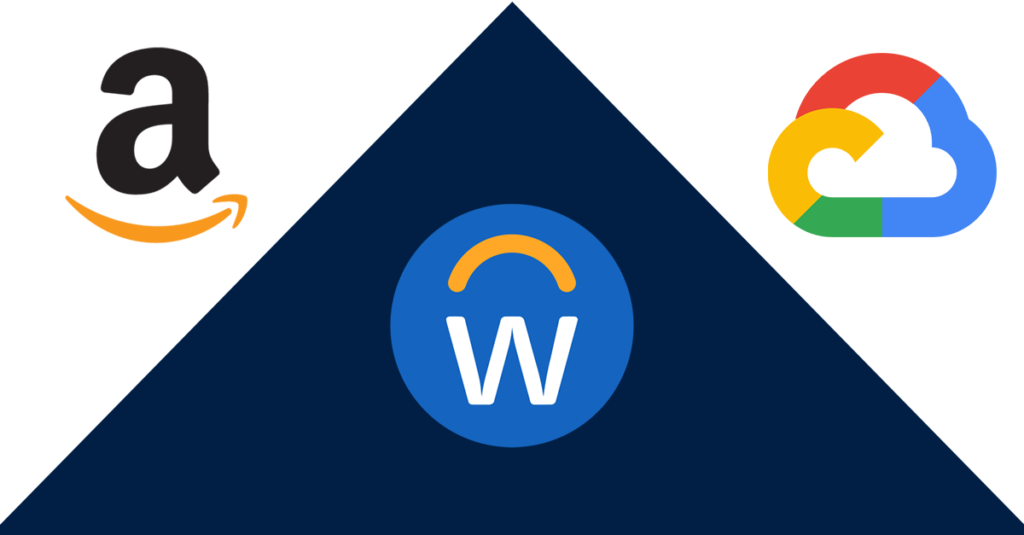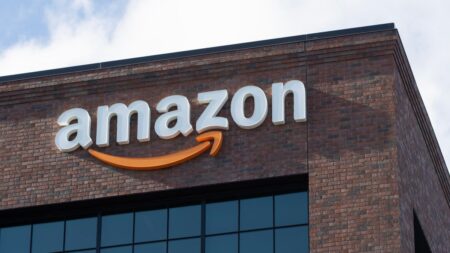As the twin forces of disruption and innovation drive massive change across the global digital economy, Workday’s recent reset with Amazon and subsequent strategic engagement with Google Cloud underscore the burning need for cloud-ecosystem nimbleness.
On my weekly Cloud Wars Top 10 rankings, Workday is #8, Amazon is #2, and Google Cloud is #3.
A couple of weeks ago, rampant rumors and news reports (but I repeat myself) popped up saying that Amazon had “dropped” Workday as its HCM provider, and as a result Workday’s market cap took a multibillion-dollar hit.
On July 27, Workday posted a blog entry called Clarifying Amazon’s Workday Deployment to dispel some of the baseless and breathless early-stage commentary about Amazon “dropping” Workday. A few highlights from that Workday post:
- “More than a year and a half ago, both Workday and Amazon mutually agreed to discontinue Amazon’s Workday Human Capital Management deployment, with the potential to revisit it in the future. This was not related to the scalability of the Workday system, as we currently support some of the world’s largest organizations, including more than 45% of the Fortune 500 and more than 70% of the top 50 Fortune 500 companies. In addition, more than 70% of our customers are live, including one of our largest customers — a retailer — across its more than 1.5 million global workers.”
- “Our relationship with Amazon remains strong with the Amazon Web Services partnership intact and other Amazon subsidiaries — such as Audible, Twitch, and Whole Foods — successfully using our system.”
- “The decision to discontinue the deployment more than 18 months ago has no impact on our previously communicated financial guidance provided on May 26, 2021.”
The Workday blog post also stated a key point about the unique nature of customers: “At times, however, customers have a unique set of needs that are different from what we’re delivering for our broader customer base, as was the case with Amazon — one of the most unique and dynamic companies in the world.”
That might seem obvious, but in today’s tumultuous business climate, some companies simply no longer conform to the model to which we in the tech business have become fully accustomed: modern packaged solutions are ideal for everyone. Well, we’re finding today that that’s just not true in all cases. Another example is the decision by SAP to recast its archetypal ERP product line in an entirely new and “modular” light to meet the new, urgent and mission-critical needs of companies racing into the dynamic realm of digital business.
So then the other shoe dropped: on August 10, Workday and Google Cloud announced that Google Cloud would become not only a preferred infrastructure provider—a nice but hardly revolutionary concept—but also a closer-than-ever-before innovation partner spanning go-to-market programs, co-marketing, co-selling and possibly even co-innovation. From the Google Cloud press release:
“Through this multi-year relationship, Google Cloud and Workday plan to build strategic, joint, go-to-market programs that include co-marketing activities and establishing co-selling programs to increase awareness among customers and prospects across the U.S.. Additionally, the two companies will explore opportunities for co-innovation, bringing even more innovative and transformative technologies to business in industries such as retail, healthcare, and financial services.”
There’s also an industry-specific-applications angle to the new Workday-Google Cloud cloudmance as noted at the end of that excerpt for retail, healthcare and financial services—and almost certainly others.
Workday is eager to expand its industry-cloud capabilities, and Google Cloud has created a powerful industries team under Lori Mitchell-Keller that, in combination with Workday, could certainly drive some of the AI-driven industry-specific solutions that have become a centerpiece of Google Cloud CEO Thomas Kurian.
So as I see it, everyone comes out of this in pretty good shape, regardless of what some “news” reports pumped out in their never-ending bid to infuse the enterprise-tech business with salacious silliness.
Workday sets the record straight re its relationship with Amazon, which “remains strong with the Amazon Web Services partnership intact and other Amazon subsidiaries — such as Audible, Twitch, and Whole Foods — successfully using our system”;
Workday also gains a red-hot partner in Google Cloud in a relationship that goes far beyond IaaS;
Amazon clarifies its relationship with Workday and also raises its sky-high profile as a company that simply doesn’t operate the way most companies do; and
Google Cloud adds a blue-chip enterprise-apps partner that will very likely become a co-innovation BFF for at least the next few years.
We should all expect more of these high-impact cloud-ecosystem partnerships as the rapidly changing pace and scope of the digital economy requires that the world-class providers across the Cloud Wars Top 10 constantly refine their alliances and capabilities to meet the expectations of a world moving faster than it ever has before.
RECOMMENDED READING
SAP Slaps Back at Larry Ellison: ‘Hundreds’ of Q2 Wins Over Oracle
Microsoft Thumps Amazon by 31% in Q2 Cloud Revenue; Bigger than AWS + Google Cloud
Google Cloud Takes on AWS, Microsoft, Oracle, Snowflake in Databases: 5 Keys to Its Success
Google Becomes World’s Hottest Cloud Vendor with Q2 Blowout
How Google Cloud Is Deutsche Bank’s Innovation Engine: 15 Examples
The New SAP: Cloud Partners’ Top Priority Becomes IP
Oracle Whips Snowflake, Amazon Redshift & Aurora with Enhanced HeatWave for MySQL
Disclosure: at the time of this writing, Workday was among the many clients of Cloud Wars Media LLC and/or Evans Strategic Communications LLC.
Subscribe to the Industry Cloud Newsletter, a free biweekly update on the booming demand from business leaders for industry-specific cloud applications.











